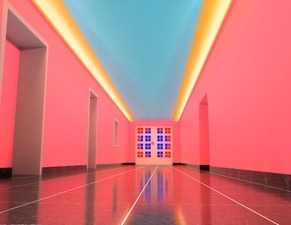Klassische Optik – Ans Licht gebracht
In the organizer's words:
Optics, a branch of physics, is the study of light. We encounter optical phenomena and appearances as soon as we open our eyes: everyday ones, such as our reflection in a mirror, dark shadows or a celestial sunset; or rarer ones, such as a rainbow or a mirage. We therefore perceive light with our eyesight - the sense that usually provides us with information about our surroundings first. It therefore stands to reason that the study of light and its properties has always been of great importance to humans.
The Classical Optics exhibition presents the fundamentals and applications of the study of light from antiquity to the beginning of the 20th century in four sections. At the beginning, selected scenes from the history of optics are shown in three showcases (dioramas). Then, in the Microscopic Theater, it's "Curtain up for the world of tiny creatures" with regular presentations. Tardigrades, predatory mites and marine plankton are the stars here. The large experimental area with a focus on geometric optics and wave optics opens up all around. Touching and trying things out is expressly encouraged here! Around twenty hands-on tables and ten push-button experiments invite you to explore and understand optical phenomena.
Live every day. New every day. For individual visitors and small groups of up to five people, guided tours, demonstrations, science shows and hands-on programs in various exhibitions take place daily, free of charge and without registration. The current daily program is published every day at around 9:20 a.m. on the website and in the Deutsches Museum app.
This content has been machine translated.












